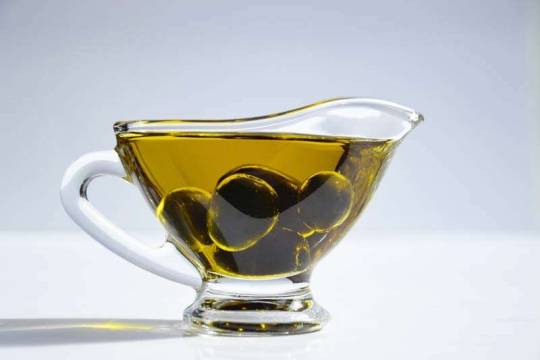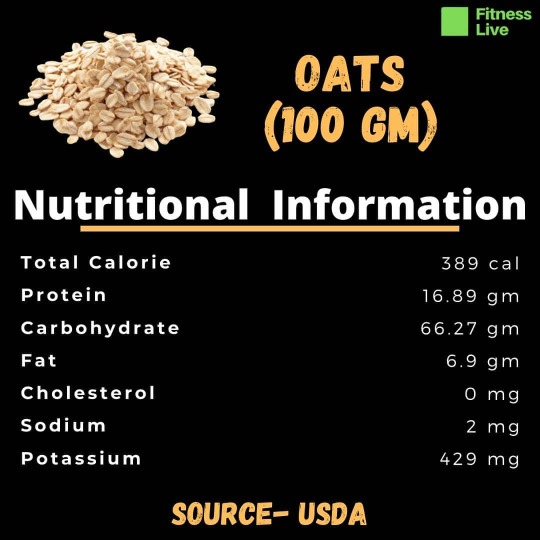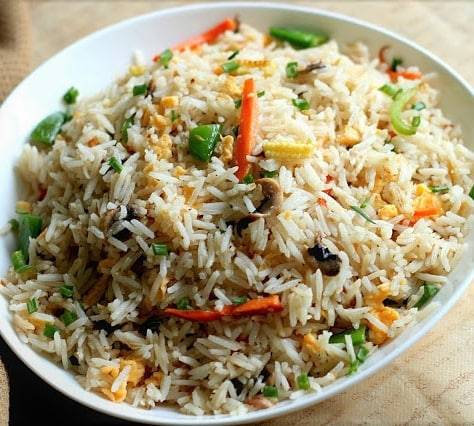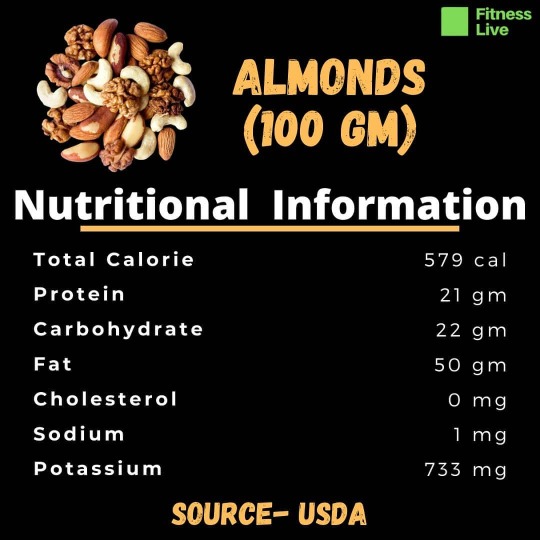#DukanDiet
Explore tagged Tumblr posts
Text
Dukan Diet for Weight Loss! Achieve Weight Loss with Lean Protein Foods!
The Dukan Diet is a structured weight loss plan that emphasizes the consumption of lean protein foods to help shed pounds effectively. Designed by French doctor Pierre Dukan, this diet is divided into four phases: Attack, Cruise, Consolidation, and Stabilization. By focusing on high-protein, low-carb meals, the Dukan Diet not only promotes rapid weight loss but also encourages the development of healthy eating habits. Whether you're looking to slim down quickly or maintain a healthy lifestyle, the Dukan Diet offers a practical approach to achieving your weight loss goals.
Visit Website: https://toneop.com/blog/dukan-diet-for-weight-loss-in-hindi
0 notes
Text
youtube
#dukandiet#dukandietplan#dukandietexplained#dukandietfoodlist#thedukandiet#dukandietreview#dukandietrecipes#dukandietrules#dukandietresults#dukandietweightloss#diet#dukandietbeforeafter#completereviewofthedukandiet#dukandiettoloseweightfast#whatisdukandiet#thedukandietexplained#dukandietexperience#dukandietsuccessstories#dukandiettransformation#thedukandietmadeeasy#stagesofthedukandiet#doesthedukandietwork#isthedukandietgood#dukandiethealthy#dukandietfood#thedukandietfoodlist#dukandietreviews#whatcanyoueatonthedukandiet#Youtube
0 notes
Text
youtube
#dukandiet#dukandietplan#dukandietexplained#dukandietfoodlist#thedukandiet#dukandietreview#dukandietrecipes#dukandietrules#dukandietresults#dukandietweightloss#diet#dukandietbeforeafter#completereviewofthedukandiet#dukandiettoloseweightfast#whatisdukandiet#thedukandietexplained#dukandietexperience#dukandietsuccessstories#dukandiettransformation#thedukandietmadeeasy#stagesofthedukandiet#doesthedukandietwork#isthedukandietgood#dukandiethealthy#dukandietfood#thedukandietfoodlist#dukandietreviews#whatcanyoueatonthedukandiet#Youtube
0 notes
Text
Popular Health Related Diets: An Overview of Characteristics, Benefits, and More

Greetings, health-conscious readers! Welcome to an enlightening journey into the world of popular diets. In this blog post, we will delve into the significance of diet in relation to our overall health and well-being. As the saying goes, "You are what you eat," and it holds true that the food we consume plays a crucial role in shaping our physical and mental health. A balanced and nutritious diet is the foundation of a healthy lifestyle. The food we consume serves as fuel for our bodies, providing essential nutrients, vitamins, and minerals that support vital functions. Moreover, the right dietary choices can help prevent chronic diseases, maintain a healthy weight, boost energy levels, and promote overall well-being. Throughout this blog post, we will explore a diverse range of popular diets, including the Mediterranean diet, Keto diet, Paleo diet, Vegan diet, Vegetarian diet, Atkins diet, DASH diet, Flexitarian diet, Dukan diet, Brat diet, South Beach diet, GOLO diet, Anti-Inflammatory diet, Low FODMAP diet, Carnivore diet, and even the Brazilian diet. By examining the characteristics, benefits, and considerations of each diet, you will gain valuable insights into their potential impact on your health and lifestyle. However, it's important to remember that individual needs and preferences vary. It is always advisable to consult with a healthcare professional or registered dietitian before embarking on any new dietary regimen. So, without further ado, let's embark on this enlightening journey through the fascinating world of popular diets. Discover the diverse approaches to nutrition and find the one that resonates with your unique needs and aspirations. Together, let's unlock the power of food and nourish our bodies for a healthier and more fulfilling life.

Mediterranean Diet
The Mediterranean diet is renowned for its emphasis on wholesome, plant-based foods, healthy fats, and moderate consumption of lean proteins. Drawing inspiration from the traditional eating patterns of countries bordering the Mediterranean Sea, this diet has gained recognition for its numerous health benefits. At the core of the Mediterranean diet are plant-based foods, including fruits, vegetables, whole grains, legumes, nuts, and seeds. These nutrient-rich foods provide a wide array of vitamins, minerals, and antioxidants that support overall health and well-being. Additionally, the Mediterranean diet encourages the consumption of healthy fats, primarily from olive oil and fatty fish, which are rich in omega-3 fatty acids.

Benefits One of the key benefits of the Mediterranean diet is its positive impact on cardiovascular health1. Numerous studies have shown that following this dietary pattern can reduce the risk of heart disease, lower cholesterol levels, and improve blood pressure control. The abundance of fruits, vegetables, whole grains, and healthy fats in the Mediterranean diet contributes to these heart-protective effects. Moreover, the Mediterranean diet is associated with increased longevity2 and a reduced risk of chronic diseases. The consumption of antioxidant-rich foods, such as colorful fruits and vegetables, along with the anti-inflammatory properties of the diet, may help combat oxidative stress and inflammation in the body. This, in turn, can help protect against conditions like diabetes, certain cancers, and neurodegenerative diseases. Incorporating the Mediterranean diet into your daily life can be both enjoyable and fulfilling. Here are some sample meal ideas to inspire you: - Breakfast: Start your day with a Greek yogurt topped with fresh berries, a sprinkle of nuts, and a drizzle of honey. Enjoy it with a side of whole grain toast. - Lunch: Prepare a colorful salad with mixed greens, cherry tomatoes, cucumbers, olives, feta cheese, and a lemon-olive oil dressing. Pair it with a serving of grilled chicken or chickpeas. - Dinner: Savor a Mediterranean-style grilled fish, such as salmon or sardines, seasoned with herbs and lemon. Serve it alongside a generous portion of roasted vegetables and a side of whole grain couscous or quinoa. - Snacks: Opt for a handful of almonds or walnuts, fresh fruit, or vegetable sticks with hummus as healthy and satisfying snack choices. Incorporating the Mediterranean diet into your daily life can be as simple as: - Prioritizing plant-based foods in your meals, aiming for a variety of colorful fruits and vegetables. - Using extra virgin olive oil as your primary source of fat for cooking and dressing. - Including whole grains, such as brown rice, quinoa, and whole wheat bread, in your diet. - Consuming moderate amounts of lean proteins, such as fish, poultry, and legumes. - Limiting the consumption of red meat and processed foods. - Enjoying meals in the company of loved ones, savoring the flavors and taking time to appreciate each bite. By embracing the Mediterranean diet, you can nourish your body with nutrient-dense foods, protect your heart health, and reduce the risk of chronic diseases. So, why not embark on a culinary journey inspired by the vibrant and wholesome Mediterranean lifestyle?
Keto Diet
The ketogenic diet, or keto diet for short, has gained significant popularity in recent years. This dietary approach places a strong emphasis on high-fat, low-carbohydrate intake, with the goal of inducing a metabolic state known as ketosis. During ketosis, the body shifts from using carbohydrates as its primary fuel source to utilizing stored fats for energy.

Benefits One of the key benefits associated with the keto diet is its potential for weight loss. By severely restricting carbohydrate intake and increasing fat consumption, the body enters a state where it burns fat more efficiently. This can lead to a reduction in body weight and body fat percentage. Additionally, the keto diet has been shown to help suppress appetite, which can further support weight loss efforts. Another advantage of the keto diet is its potential to improve insulin sensitivity. By minimizing carbohydrate intake, blood sugar and insulin levels tend to stabilize, which can be beneficial for individuals with insulin resistance or type 2 diabetes. However, it's important to note that anyone with diabetes or other underlying health conditions should consult with a healthcare professional before starting the keto diet. Beyond weight loss and improved insulin sensitivity, the keto diet has also shown promise in various therapeutic applications. Research suggests that it may be beneficial for individuals with epilepsy, as it can help reduce the frequency and severity of seizures. Additionally, some studies have explored the potential benefits of the keto diet for managing certain neurological conditions, such as Alzheimer's disease and Parkinson's disease. However, more research is needed in these areas. Considerations While the keto diet offers potential benefits, it's important to consider some considerations and potential challenges associated with this dietary approach. One of the main challenges is the significant restriction of carbohydrates, which may require careful meal planning and adjustment. This can be particularly challenging for those accustomed to a higher carbohydrate intake. Additionally, the keto diet may not be suitable for everyone. Individuals with certain medical conditions, such as pancreatitis or liver disease, should avoid this dietary approach. Furthermore, the keto diet may lead to nutrient deficiencies if not properly planned, as it restricts many food groups that are rich in essential vitamins and minerals. It's also worth noting that some people may experience side effects when transitioning to the keto diet. This can include symptoms such as fatigue, dizziness, and digestive issues, commonly referred to as the "keto flu." These symptoms typically subside as the body adapts to using fats as its primary fuel source. In conclusion, the ketogenic diet can be a powerful tool for weight loss, improved insulin sensitivity, and potential therapeutic applications. However, it's important to approach this diet with caution and consider the potential challenges and individual suitability. If you are considering the keto diet, consulting with a healthcare professional or registered dietitian is highly recommended to ensure it aligns with your specific needs and goals.
Paleo Diet
The paleo diet, also known as the "caveman" or "hunter-gatherer" diet, takes inspiration from our ancestors' eating patterns. It focuses on consuming whole, unprocessed foods that mimic what our early human predecessors might have eaten. The fundamental principle of the paleo diet is to avoid processed foods, grains, legumes, dairy products, and added sugars, while emphasizing the consumption of lean meats, fish, fruits, vegetables, nuts, and seeds.

Benefits One of the main benefits of the paleo diet is its potential to reduce inflammation in the body. By eliminating processed foods and refined sugars, which are known to contribute to inflammation, the paleo diet promotes the consumption of nutrient-dense foods that can help combat chronic inflammation. This can have positive effects on various aspects of health, such as reducing the risk of chronic diseases like heart disease, diabetes, and certain autoimmune conditions. Additionally, the paleo diet has been associated with weight management and improved body composition. By focusing on whole, unprocessed foods and encouraging a higher intake of protein and healthy fats, the paleo diet can support satiety and help regulate hunger hormones. This can lead to better appetite control and potentially aid in weight loss or weight maintenance efforts. Another advantage of the paleo diet is its emphasis on nutrient density. By prioritizing whole, unprocessed foods, the paleo diet tends to provide a wide range of essential vitamins, minerals, and antioxidants. This can help ensure a well-rounded nutrient intake and support overall health and well-being. Limitations and Criticisms However, it's important to consider some potential limitations and criticisms of the paleo diet. Critics argue that the strict elimination of entire food groups, such as grains and legumes, may lead to nutrient deficiencies if not carefully planned. These food groups can provide valuable nutrients, such as fiber, B vitamins, and minerals. Therefore, it's important to ensure adequate substitution and variety within the paleo diet. Additionally, some people may find it challenging to adhere to the paleo diet in modern society, where processed and convenience foods are abundant. The restrictive nature of the diet may also make it socially challenging in certain situations, such as dining out or attending social gatherings. In conclusion, the paleo diet promotes the consumption of whole, unprocessed foods similar to what our ancestors ate. It offers potential benefits such as reducing inflammation, supporting weight management, and improving nutrient density. However, it's important to address the potential limitations and criticisms of the diet, such as the potential for nutrient deficiencies and the challenges of adhering to its strict guidelines. As with any dietary approach, individual considerations and guidance from a healthcare professional or registered dietitian are advised.
Vegan Diet
The vegan diet is a plant-based dietary approach that excludes all animal products, including meat, fish, dairy, eggs, and honey. It places a strong emphasis on the consumption of plant-based foods, such as fruits, vegetables, whole grains, legumes, nuts, and seeds. Veganism goes beyond just a dietary choice and encompasses a lifestyle that aims to minimize harm to animals and promote environmental sustainability.

Benefits One of the primary benefits of following a vegan diet is its positive impact on animal welfare. By abstaining from the consumption of animal products, vegans choose to support a lifestyle that reduces the demand for animal exploitation in the food industry. This ethical consideration aligns with the belief that animals should not be used for human consumption and allows individuals to make choices that align with their values. Read the full article
#antiinflammatorydiet#Atkinsdiet#bratdiet#Braziliandiet#carnivorediet#DASHDiet#dukandiet#flexitariandiet#golodiet#ketodiet#lowFODMAPdiet#mediterraneandiet#paleodiet#SouthBeachdiet#vegandiet#vegetariandiet
1 note
·
View note
Link
Discover a healthy way to shed those extra pounds with the #DukanDiet! Say goodbye to fad diets and hello to sustainable weight loss. 🌱🏋️♀️ Click the link in our bio to learn more! #HealthyLiving #WeightLossGoals
0 notes
Photo

• The oat, sometimes called the common oat, is a species of cereal grain grown for its seed, which is known by the same name.
• While oats are suitable for human consumption as oatmeal and oat milk, one of the most common uses is as livestock feed. Oats are associated with lower blood cholesterol when consumed regularly.
• Oats are among the healthiest grains on earth.
• They’re a gluten-free whole grain and a great source of important vitamins, minerals, fiber and antioxidants.
• Oats are a whole- grain food, known scientifically as Avena sativa.
• Oat groats, the most intact and whole form of oats, take a long time to cook. For this reason, most people prefer rolled, crushed or steel-cut oats.
• Instant (quick) oats are the most highly processed variety. While they take the shortest time to cook, the texture may be mushy.
• Oats are commonly eaten for breakfast as oatmeal, which is made by boiling oats in water or milk. Oatmeal is often referred to as porridge.
• They’re also often included in muffins, granola bars, cookies and other baked goods.
• Oats are high in the soluble fiber beta-glucan, which has numerous benefits. It helps reduce cholesterol and blood sugar levels, promotes healthy gut bacteria and increases feelings of fullness.
• Oats contain many powerful antioxidants, including avenanthramides. These compounds may help reduce blood pressure and provide other benefits.
https://www.instagram.com/p/CEswHRyhV9G/?igshid=a0el87wy0ft6
#nutritiontip#nutritionzone#nutritionisthekey#nutritionalketosis#fitnesslive24#nutritionblogger#nutritionmatters#nutritioniskey#nutritions#nutritionadvice#nutritionaltherapy#nutritionfirst#dukandiet#dietcoach#dietlife#dietetics#dieter#healthfacts#healthbenefits#healthgoals#immuneboost#eatfit#naturalcure#fitandhealthy#healthyrecipe#oats#oatmeal#oatmilk#oatmealbowl#oatporn
1 note
·
View note
Video
instagram
#weightlosscommunity #lifestyle #energyslim #postpartumweightloss #weightlosssurgery #extremeweightloss #energypro #gettingslim #weightlossstory #weightlosstips #foodblogger #healthyweightloss #getslim #gym #weightloss #fitnessmotivation #transformation #dukandiet #work #cardio #naturalweightloss #weightlosstransformations #bodyfitness (at Ilford Town Centre) https://www.instagram.com/p/Byj3K5GnMff/?igshid=19tbakrrfgyr9
#weightlosscommunity#lifestyle#energyslim#postpartumweightloss#weightlosssurgery#extremeweightloss#energypro#gettingslim#weightlossstory#weightlosstips#foodblogger#healthyweightloss#getslim#gym#weightloss#fitnessmotivation#transformation#dukandiet#work#cardio#naturalweightloss#weightlosstransformations#bodyfitness
3 notes
·
View notes
Photo

What's Important Is What You Learn🐼👊👊👊 . . #energyslim #bodyfitness #fitnessmotivation #weightlosstips #motivation #getslim #DonPapaBear #transformation #energydiet #work #energypro #weightlosscommunity #gym #gettingslim #fit #lifestyle #fooddiary #extremeweightloss #naturalweightloss #dukandiet #crazyfit #foodblogger #weightloss #healthyweightloss #cardio #weightlossstory https://www.instagram.com/p/ByzRXqcDICN/?igshid=16vnsik2tafmz
#energyslim#bodyfitness#fitnessmotivation#weightlosstips#motivation#getslim#donpapabear#transformation#energydiet#work#energypro#weightlosscommunity#gym#gettingslim#fit#lifestyle#fooddiary#extremeweightloss#naturalweightloss#dukandiet#crazyfit#foodblogger#weightloss#healthyweightloss#cardio#weightlossstory
1 note
·
View note
Photo

https://www.cookingfever101.com/2020/10/mix-vegetable-rice.html . . @prilaga #weightlosstips #dukandiet #weightlosssurgery #energypro #gym #fitnessmotivation #transformation #bodyfitness #weightlossstory #energydiet #prilaga #weightloss #weightlosscommunity #cardio #energyslim #fit #foodblogger #motivation #postpartumweightloss #extremeweightloss #work #weightlosstransformations #fooddiary #crazyfit #gettingslim #healthyweightloss #lifestyle #weightlossbeforeandafter #getslim #naturalweightloss https://www.instagram.com/p/CGwGLl_hZdq/?igshid=sescrt7bfwre
#weightlosstips#dukandiet#weightlosssurgery#energypro#gym#fitnessmotivation#transformation#bodyfitness#weightlossstory#energydiet#prilaga#weightloss#weightlosscommunity#cardio#energyslim#fit#foodblogger#motivation#postpartumweightloss#extremeweightloss#work#weightlosstransformations#fooddiary#crazyfit#gettingslim#healthyweightloss#lifestyle#weightlossbeforeandafter#getslim#naturalweightloss
0 notes
Photo

Take a day off between weight-lifting sessions. Always give muscle groups 48 hours of rest between resistance workouts to allow them time to adapt to the stress you put on them. If you must lift every day, don't target the same muscles in back-to-back sessions. . . . . . . . . . . . . . . . . . . @nonibeauty_official #naturalweightloss #fit #energydiet #lifestyle #weightloss #dukandiet #transformation #weightlossbeforeandafter #cardio #crazyfit #bodyfitness #work #energypro #weightlossstory #healthyweightloss #getslim #prilaga #gym #weightlosstransformations #weightlosssurgery #motivation #fitnessmotivation #fooddiary #energyslim #foodblogger #postpartumweightloss #extremeweightloss #weightlosstips #weightlosscommunity #gettingslim https://www.instagram.com/p/CF7prKoh4gZ/?igshid=1a72xfqaj7wm4
#naturalweightloss#fit#energydiet#lifestyle#weightloss#dukandiet#transformation#weightlossbeforeandafter#cardio#crazyfit#bodyfitness#work#energypro#weightlossstory#healthyweightloss#getslim#prilaga#gym#weightlosstransformations#weightlosssurgery#motivation#fitnessmotivation#fooddiary#energyslim#foodblogger#postpartumweightloss#extremeweightloss#weightlosstips#weightlosscommunity#gettingslim
0 notes
Video
youtube
The Dukan Diet A Structured Weight Loss Plan
The Dukan Diet, created by Dr. Pierre Dukan, is a high-protein, low-carb diet divided into four stages: Attack, Cruise, Consolidation, and Stabilization. Each phase focuses on protein-rich foods while gradually reintroducing other food groups. While it promises quick weight loss, critics warn of potential nutritional deficiencies. Consulting a healthcare provider is recommended before starting this diet. Hashtags
0 notes
Photo

• Almonds are the edible seeds of Prunus dulcis, more commonly called the almond tree.
• They are native to the Middle East, but the US is now the world’s largest producer.
• The almonds you can buy in stores usually have the shell removed, revealing the edible nut inside. They are sold either raw or roasted.
• They are also used to produce almond milk, oil, butter, flour or paste — also known as marzipan.
• Almonds boast an impressive nutrient profile. A 1-ounce (28-gram) serving of almonds contains (1):
• Fiber: 3.5 grams • Protein: 6 grams • Fat: 14 grams (9 of which are monounsaturated) • Vitamin E: 37% of the RDI • Manganese: 32% of the RDI • Magnesium: 20% of the RDI
They also contain a decent amount of copper, vitamin B2 (riboflavin) and phosphorus.
• This is all from a small handful, which supplies only 161 calories and 2.5 grams of digestible carbohydrates.
• It is important to note that your body does not absorb 10–15% of their calories because some of the fat is inaccessible to digestive enzymes.
• Almonds are also high in phytic acid, a substance that binds certain minerals and prevents them from being absorbed.
• While phytic acid is generally considered a healthy antioxidant, it also slightly reduces the amount of iron, zinc and calcium you get from almonds.
https://www.instagram.com/p/CEjplixBtfL/?igshid=qunaxh6t3trf
#nutritiontip#nutritionzone#nutritionisthekey#nutritionalketosis#nutritionblogger#nutritionmatters#nutritioniskey#nutritions#nutritionadvice#nutritionaltherapy#nutritionfirst#dukandiet#dietcoach#dietlife#dietetics#dieter#fitnesslive24#almondcake#almondbutter#almondnutrition#almondshape#foodfacts#fitnesscommunity#fitnessfamily#eatfit#eatcleandiet#almond#almonds#musclediet
1 note
·
View note
Video
#weightlosscommunity #lifestyle #energyslim #postpartumweightloss #weightlosssurgery #extremeweightloss #energypro #gettingslim #weightlossstory #weightlosstips #foodblogger #healthyweightloss #weightloss #fitnessmotivation #transformation #dukandiet #work #cardio #naturalweightloss #weightlosstransformations #bodyfitness #motivation #fit (at Ilford Town Centre) https://www.instagram.com/p/Byj23bunkDr/?igshid=l6fslf3wb9ul
#weightlosscommunity#lifestyle#energyslim#postpartumweightloss#weightlosssurgery#extremeweightloss#energypro#gettingslim#weightlossstory#weightlosstips#foodblogger#healthyweightloss#weightloss#fitnessmotivation#transformation#dukandiet#work#cardio#naturalweightloss#weightlosstransformations#bodyfitness#motivation#fit
1 note
·
View note
Photo

https://www.cookingfever101.com/2020/09/best-food-for-your-age-range.html . @prilaga #fooddiary #lifestyle #getslim #dukandiet #weightlosssurgery #gym #fitnessmotivation #weightlossbeforeandafter #work #energydiet #motivation #transformation #cardio #foodblogger #weightlosstips #extremeweightloss #weightlossstory #weightloss #bodyfitness #crazyfit #prilaga #fit #energyslim #weightlosscommunity #postpartumweightloss #gettingslim #naturalweightloss #energypro #healthyweightloss #weightlosstransformations https://www.instagram.com/p/CEpN_jkh0ar/?igshid=1ipn6wfk422wc
#fooddiary#lifestyle#getslim#dukandiet#weightlosssurgery#gym#fitnessmotivation#weightlossbeforeandafter#work#energydiet#motivation#transformation#cardio#foodblogger#weightlosstips#extremeweightloss#weightlossstory#weightloss#bodyfitness#crazyfit#prilaga#fit#energyslim#weightlosscommunity#postpartumweightloss#gettingslim#naturalweightloss#energypro#healthyweightloss#weightlosstransformations
0 notes
Text
Hallo ihr Lieben ♥ Ich starte kommende Woche in meine Dukan Diät! Ich möchte euch unterstützen und hoffe, dass auch ihr mir helfen könnt diese Zeit glücklich zu überstehen 😘 Gibt es hier bereits Personen die davon berichten können? Ich würde mich freuen ⬇️⬇️⬇️ in meinem nächsten Post erfahrt ihr mehr über meine Person 👩🏼🌸
#dukan#diet#diät#motivation#workout#dukandiet#food#lose#weight#healthy#lifestyle#fit#eat#eatclean#chance#amazing#start#now
1 note
·
View note